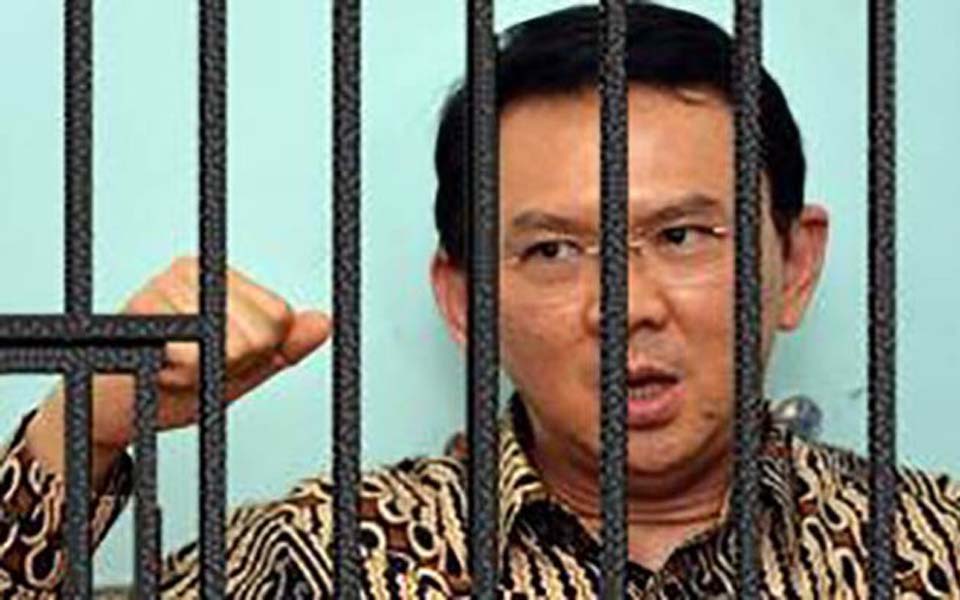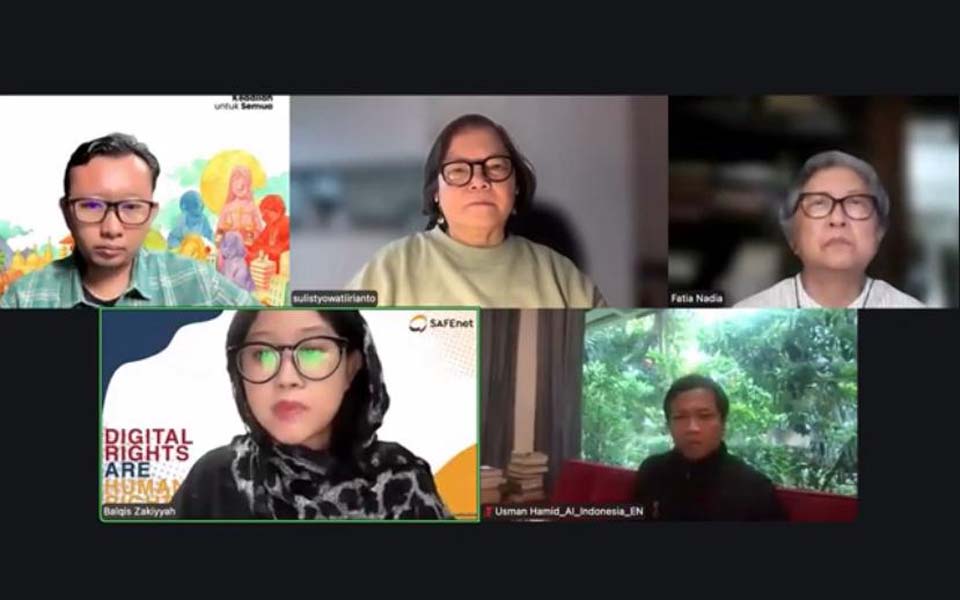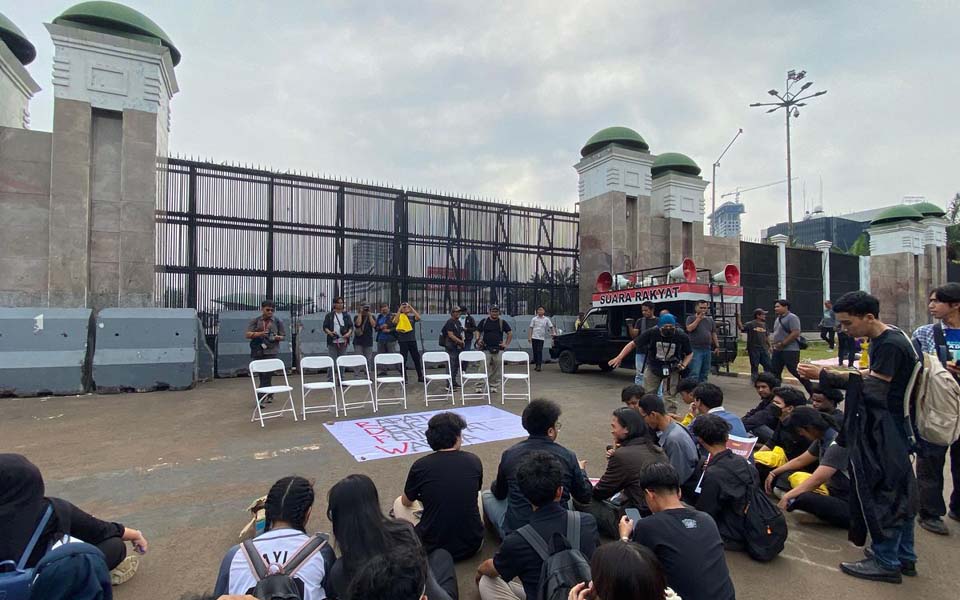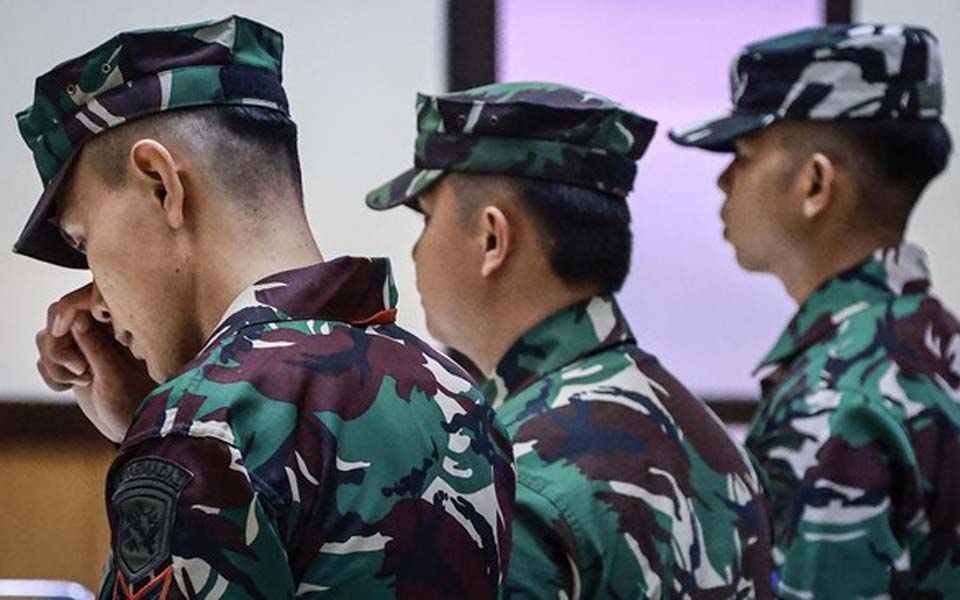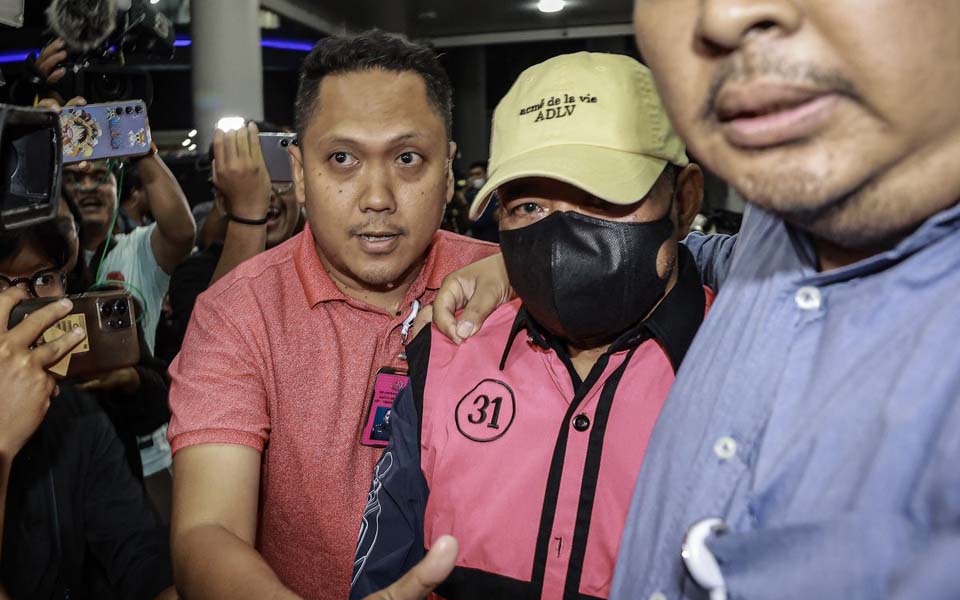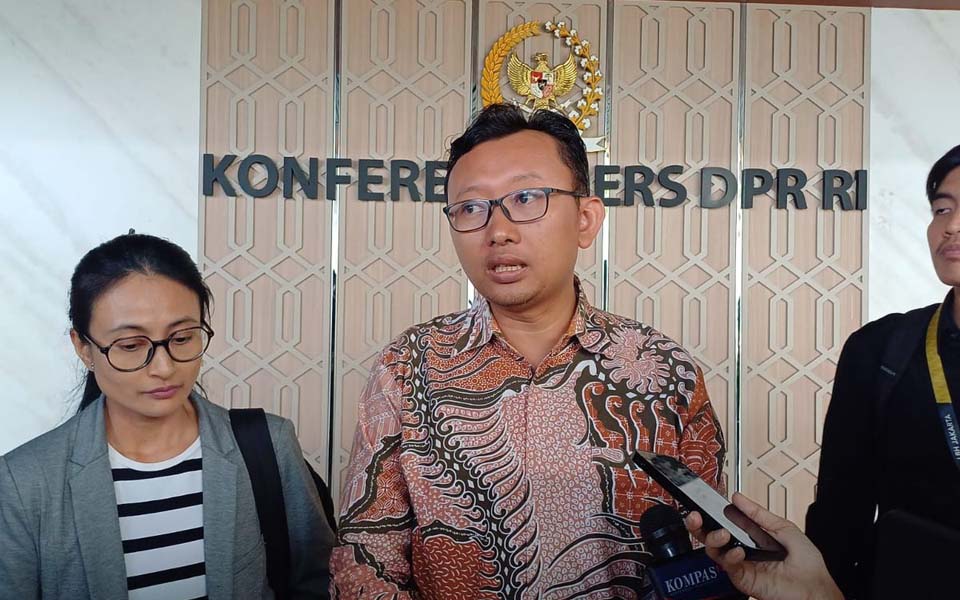Jakarta – The Commission for Missing Persons and Victims of Violence (Kontras) says that the release of former Jakarta governor Basuki “Ahok” Tjahaja Purnama should become an impetus for the abolition of Article 156a of the Criminal Code (KUHP) on desecration or insulting religion in the deliberations on revising the draft Criminal Code (RKUHP).
Kontras Coordinator Yati Andriyani said that the article contains no explanation or qualification of what blasphemy is and the parameters are unclear. The flow on effect of this, she said, is that the interpretation of what constitutes blasphemy is extremely subjective and susceptible to being used to criminalise people.
“This [provides] an impetus to reflect on the use of the article on insulting religion which has claimed so many victims”, said Andriyani in a written release on Friday January 25.
Andriyani said that the jailing of Purnama is a warning to the public and the administration that because of this article anyone can become a victim of criminalisation.
Kontras noted that a number of people have been prosecuted under the article such as Lia Eden, Tajul Muluk, Ahmad Musadeq, Yusman Roy, Mangapin Sibuea and Meliana.
Furthermore, Andriyani explained that the considerations used by trial judges in handing down verdicts for blasphemy defendants is open to wide interpretation, starting with the prohibition on issuing statements which are deemed insulting to a religion to prohibitions on spreading beliefs which are deemed deviant.
“Considering the subjectivity of the use of Article 156a of the KUHP on insulting religion this is the right moment to ‘nationalise’ Indonesia’s criminal code and for the government and the DPR [House of Representatives] to use the RUU of the KUHP to evaluate the application of the blasphemy article”, she said.
On the other hand, Andriyani said that Kontras also noted that violations of freedom of religion, belief and worship (KBB) are consistently dominated by incidents of violations against civil and political rights in society.
Between 2014 and 2018, Andriyani said, there were at least 488 cases of violations against KBB involving as many as 896 victims. Meanwhile the violations against worship and belief were committed by civil groups, ormas [social or mass organisations], law enforcement officials and the government.
“We also note that there were at least four discriminative policies which could promote intolerant practices”, said Andriyani.
Meanwhile the basic motives which dominate these, said Andriyani, are religion and politics. Religious motives are widely used by individuals or certain ormas to carry out persecution.
Andriyani detailed how persecution based on religious motives begins from prohibitions on worship for certain minorities and ends with intimidation, the sealing of places of worship, prohibitions on religious activities, forced evictions, stigmatisation, violence and other kinds of discrimination.
Religious freedom not guaranteed
Andriyani said that Kontras is deeply disappointed that Article 156a is still included in the draft RKUHP, both in the draft dated May 28, 2019 as well as the July 9, 2018 draft. In the draft that Kontras currently has, Article 156a is enshrined in Article 326 of the RKUHP.
Article 326 of the RKUHP states that “Any person who publically insults one of the religions followed in Indonesia shall be sentenced to a maximum jail term of 5 (five) years or a maximum fine amounting to category V”.
Andriyani says that although the formulation of the article in the RKUHP no longer uses the term “desecration” (penodaan) as it does in the current KUHP, the term “insult” (penghinaan) which is used instead is susceptible to wide interpretation and could be used to criminalise the followers of religious minorities.
“By still including this in the article’s formulation it shows that guarantees on the freedom of religion and belief, and other expressions are not yet fully guaranteed by the state, moreover they are outside the channels of law enforcement which should be aimed at protecting citizen’s human rights”, said Andriyani.
Related to this, Andriyani is urging the government and the DPR to abolish the articles on desecrating and or insulting religion in the formulation of the RKUHP.
She also says that law enforcement officials should not criminalise and persecute communities for desecrating or insulting religion. Law enforcement officials, she said, must prioritise the protection of communities.
The state, continued Andriyani, should not be allowed to carry out “seasonal” acts of intolerance in any form, referring to the current election season.
“Especially if there is a political momentum or certain political goal. This is important to understand in order to prevent such incidents from being repeated every year”, she said. (jps/ain)
[Translated by James Balowski. The original title of the article was “KontraS Sebut Bebasnya Ahok Momentum Hapus Pasal 156a”.]





